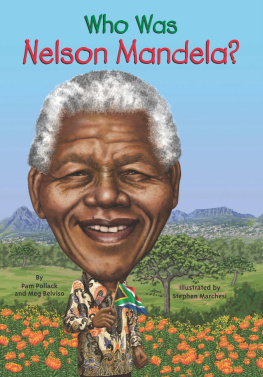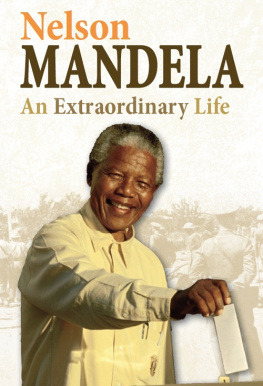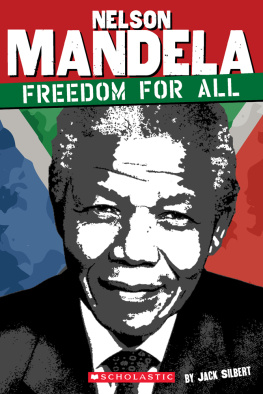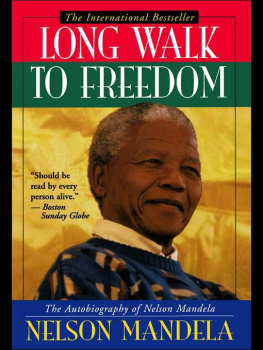Mandela Nelson - Prison Letters of Nelson Mandela
Here you can read online Mandela Nelson - Prison Letters of Nelson Mandela full text of the book (entire story) in english for free. Download pdf and epub, get meaning, cover and reviews about this ebook. year: 2018, publisher: W W Norton & Co Inc, genre: Home and family. Description of the work, (preface) as well as reviews are available. Best literature library LitArk.com created for fans of good reading and offers a wide selection of genres:
Romance novel
Science fiction
Adventure
Detective
Science
History
Home and family
Prose
Art
Politics
Computer
Non-fiction
Religion
Business
Children
Humor
Choose a favorite category and find really read worthwhile books. Enjoy immersion in the world of imagination, feel the emotions of the characters or learn something new for yourself, make an fascinating discovery.

- Book:Prison Letters of Nelson Mandela
- Author:
- Publisher:W W Norton & Co Inc
- Genre:
- Year:2018
- Rating:5 / 5
- Favourites:Add to favourites
- Your mark:
- 100
- 1
- 2
- 3
- 4
- 5
Prison Letters of Nelson Mandela: summary, description and annotation
We offer to read an annotation, description, summary or preface (depends on what the author of the book "Prison Letters of Nelson Mandela" wrote himself). If you haven't found the necessary information about the book — write in the comments, we will try to find it.
Prison Letters of Nelson Mandela — read online for free the complete book (whole text) full work
Below is the text of the book, divided by pages. System saving the place of the last page read, allows you to conveniently read the book "Prison Letters of Nelson Mandela" online for free, without having to search again every time where you left off. Put a bookmark, and you can go to the page where you finished reading at any time.
Font size:
Interval:
Bookmark:
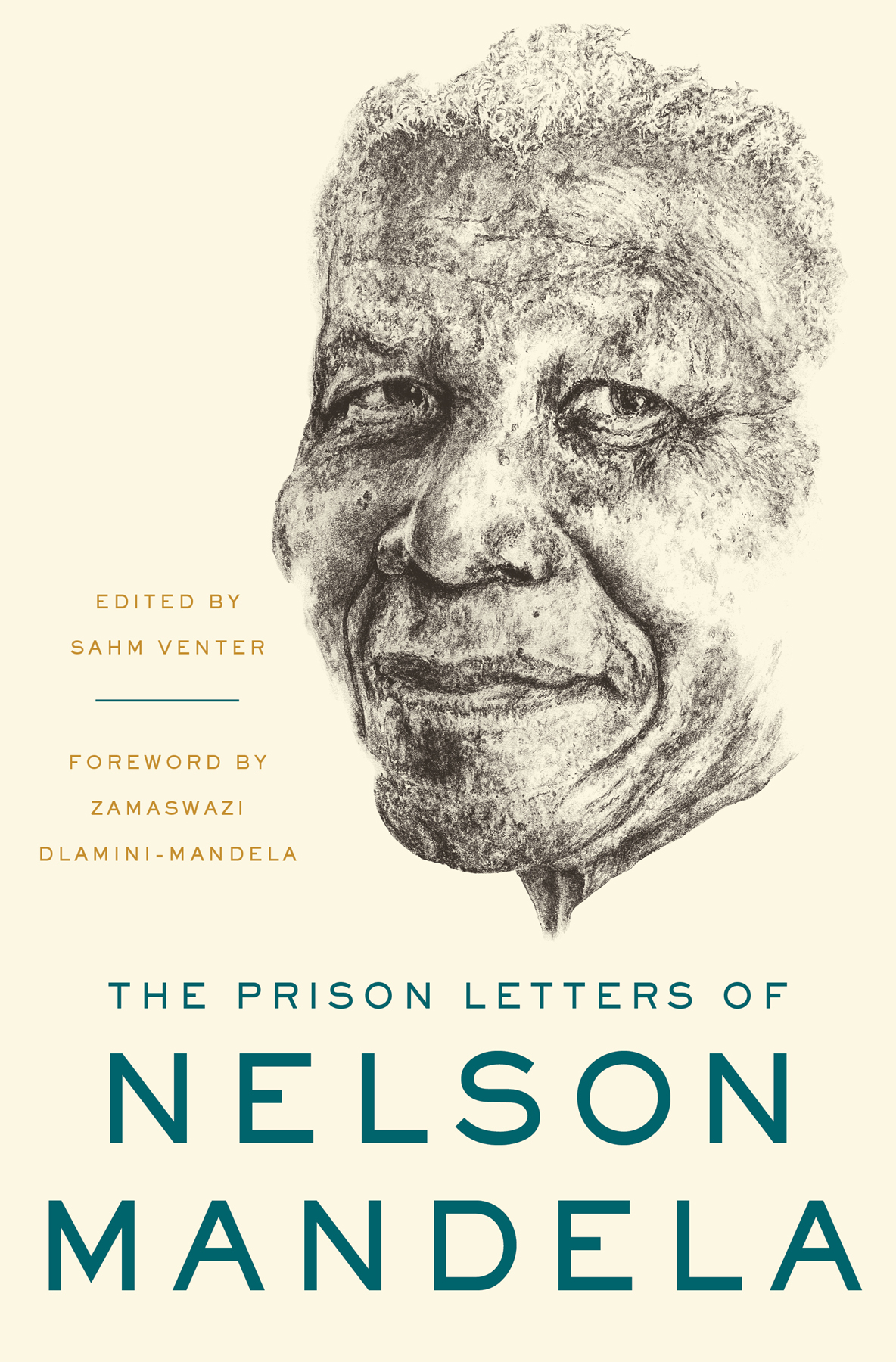

THE PRISON LETTERS OF
NELSON MANDELA
EDITED BY SAHM VENTER
FOREWORD BY ZAMASWAZI DLAMINI-MANDELA

LIVERIGHT PUBLISHING CORPORATION
A Division of W. W. Norton & Company
Independent Publishers Since 1923
New York London
Copyright 2018 by the Estate of Nelson Rolihlahla Mandela
Copyright 2018 by the Nelson Mandela Foundation
Concept and design copyright 2018 by Blackwell and Ruth Limited
Owing to limitations of space, all acknowledgements for permission to reprint previously published and unpublished material can be found on .
All rights reserved
First Edition
For information about permission to reproduce selections from this book, write to Permissions, Liveright Publishing Corporation, a division of W. W. Norton & Company, Inc., 500 Fifth Avenue, New York, NY 10110
For information about special discounts for bulk purchases, please contact W. W. Norton Special Sales at specialsales@wwnorton.com or 800-233-4830
Book design by Cameron Gibb
Production manager: Anna Oler
JACKET DESIGN BY STEVE ATTARDO
JACKET ILLUSTRATION BY JAYMI CROOK / NELSON MANDELA
PORTRAIT NELSON R. MANDELA, IMAGE BY ANDREW ZUCKERMAN
Produced and originated by Blackwell and Ruth Limited
405 IronBank, 150 Karangahape Road, Auckland 1010, New Zealand
www.blackwellandruth.com
ISBN 978-1-63149-117-7
ISBN 978-1-63149-118-4 (e-book)
Liveright Publishing Corporation, 500 Fifth Avenue, New York, N.Y. 10110
www.wwnorton.com
W. W. Norton & Company Ltd., 15 Carlisle Street, London W1D 3BS

www.nelsonmandelafoundation.org
CONTENTS


B y the time I was born, my grandfather had already been in prison for seventeen years. In a letter to my grandmother, Winnie Madikizela-Mandela, shortly after his sixty-second birthday, he lists the people that he has received telegrams and cards from, including my Aunt Zindzi, my sister, Zaziwe, and me, and the people hes expecting and hoping to hear from. So far I have received not a single one of the multitude that friends have sent from all over the world, he jokes. Nevertheless, it is very comforting to know that so many friends still think of us after so many yrs. Its one of many examples in this book that shows how communication from the outside world bolstered him through his twenty-seven years in prison, and just how much he yearned for those letters.
During his incarceration, my grandfather wrote many hundreds of letters. The selection that appears in this book intimately acquaints readers not only with Nelson Mandela the political activist and prisoner, but with Nelson Mandela the lawyer, father, husband, uncle and friend, and illustrates how his lengthy incarceration, far away from everyday life, impeded him in carrying out these roles. It revisits a very dark time in South Africas history where those caught opposing the apartheid governments system to oppress an entire race of people, endured terrible punishments. Through his letters he documents the ongoing persecution of my grandmother and provides insight into what it must have been like for his children, Thembi, Makgatho, Makaziwe, Zenani, and Zindzi, to have an absent father that they could barely communicate with or this I found unbearable even visit until they turned sixteen. As much as he tried to parent his children from prison, he couldnt.
What has particularly affected me, especially as a mother, is witnessing through my grandfathers letters what my mother and my Aunt Zindzi went through as children. Often they were left parentless while my grandmother was imprisoned as well, sometimes because of her involvement in anti-apartheid activities but often for being the wife of one of South Africas most well-known political prisoners.
Most heartrending, is the wistful optimism in many of the letters to my grandmother and his children where my grandfather suggests, Perhaps one day we will... and One day we shall.... That happily-ever-after day never came for my grandparents, my mom, and my aunts and uncles. The children suffered the most, and ultimately the consequences of forfeiting a stable family life for his ideals was a sacrifice that my grandfather just had to make peace with.
My grandfather always reminded us that we should never forget our past or where we come from. The democratic society that both my grandparents and their comrades fought for was achieved after a lot of suffering and loss of life. This book is a reminder that we could easily go back to that place of hatred, but it also shows that personal resilience can overcome unendurable situations. From day one in prison, my grandfather resolved that he would not break or waver; instead he would insist that he and his fellow prisoners be treated with dignity. In a letter to my grandmother in 1969, he recommends she boosts her spirits by reading psychologist Norman Vincent Peales 1952 bestseller The Power of Positive Thinking. He writes: I attach no importance to the metaphysical aspects of his arguments, but I consider his views on physical & psychological issues valuable.
He makes the basic point that it is not so much the disability one suffers from that matters but ones attitude to it. The man who says: I will conquer this illness & live a happy life, is already halfway through to victory.
This inspirational outlook sustained my grandfathers unwavering pursuit of justice and an equal society for all South Africans, and is one that I think can be applied to many of lifes challenges.
This collection has answered many of the questions that used to baffle me: How did my grandfather survive twenty-seven years in jail? What kept him going? Through his words we can find the answers.
Zamaswazi Dlamini-Mandela
A raft of draconian regulations governing the writing of letters by South African political prisoners and their random implementation by mean-spirited guards was designed to control the most precious aspects of a prisoners soul their contact with loved ones and news of the outside world.
After political prisoners were sentenced in court, they were assigned to the prison where they were supposed to serve their punishment. In Nelson Mandelas case, his life as a condemned prisoner began in Pretoria Local Prison after he received a five-year sentence on 7 November 1962 for leaving the country without a passport and inciting workers to strike. Already a prisoner, he was brought back to court on sabotage charges in 1963, and on 12 June 1964 he received a lifelong sentence. His wife, Winnie Mandela, visited him in Pretoria that day, and hours later, without warning, he and six of the seven comrades sentenced with him were taken from Pretoria for the long flight in a military aircraft to the notorious prison on Robben Island. They arrived on a bitterly cold winter morning on 13 June 1964. Unlike inmates who had committed common law crimes like rape, robbery, and assault, who were classified as C Grade and sometimes B Grade on arrival, political prisoners were assigned to D Grade, the lowest possible classification with the least privileges. They were allowed only one visitor every six months and were entitled to write and receive only one letter of five hundred words every six months. So unpredictable was the process of sending and receiving letters that six years after he was imprisoned, Mandela met with his lawyers on Robben Island and listed examples of unreasonable and vexatious behaviour and conduct of the authorities. He said that the disruptions to his correspondence, indicate a deliberate intention and policy on the part of the authorities to cut me off and isolate me from all external contacts, to frustrate and demoralise me, to make me despair and lose all hope and eventually break me.
Font size:
Interval:
Bookmark:
Similar books «Prison Letters of Nelson Mandela»
Look at similar books to Prison Letters of Nelson Mandela. We have selected literature similar in name and meaning in the hope of providing readers with more options to find new, interesting, not yet read works.
Discussion, reviews of the book Prison Letters of Nelson Mandela and just readers' own opinions. Leave your comments, write what you think about the work, its meaning or the main characters. Specify what exactly you liked and what you didn't like, and why you think so.




